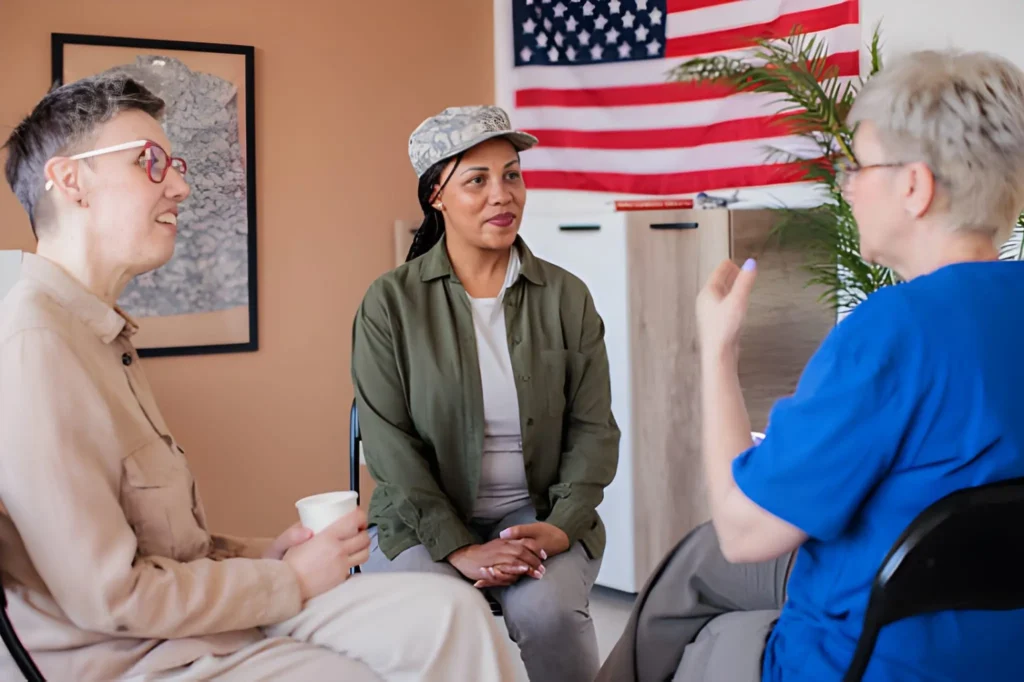Veterans often carry a heavy burden long after returning from active duty, and survivor’s guilt is one of the most complex emotional challenges they face. Experiencing the loss of comrades while remaining alive can lead to intense feelings of guilt, questioning one’s actions, and struggling to reconcile survival with the death of others. These emotions can intersect with post-traumatic stress disorder, depression, and anxiety, making day-to-day functioning difficult. Understanding survivor’s guilt and recognizing its impact is a critical first step in managing these feelings. We will explore strategies to help veterans navigate this challenging psychological terrain, emphasizing support systems, coping techniques, and professional guidance that prioritizes emotional well-being while honoring the experiences of those who have served.
Support Strategies for Managing Survivor’s Guilt
Engaging in Peer Support Networks
Connecting with other veterans who have faced similar experiences can provide a sense of validation and understanding that is difficult to find elsewhere. Peer support groups, including programs associated with Hospice for Veterans, allow veterans to share their feelings without fear of judgment, facilitating conversations about difficult memories, moral conflicts, and the complex emotions tied to survival. These networks often help individuals recognize that guilt is a common reaction rather than a personal failing. Veterans may participate in local veteran organizations, online communities, or structured support programs coordinated by organizations such as the Department of Veterans Affairs. Active engagement in peer networks fosters a sense of belonging, reduces isolation, and encourages participants to discuss coping strategies that have been effective for others, creating a community of shared understanding and encouragement.
Professional Counseling and Therapy
Seeking professional counseling provides a structured environment to process survivor’s guilt and its underlying trauma. Mental health professionals trained in trauma-informed care can help veterans explore feelings of responsibility, grief, and self-blame in a safe and supportive setting. Therapeutic approaches, such as cognitive-behavioral therapy, exposure therapy, and narrative therapy, are often used to help individuals reframe negative thought patterns and develop healthier coping mechanisms. Additionally, some veterans benefit from therapies designed specifically for military experiences, addressing the unique moral and ethical challenges faced during service. Regular sessions can promote emotional resilience, reduce intrusive memories, and empower veterans to move forward without carrying excessive guilt.
Mindfulness and Stress Reduction Techniques
Incorporating mindfulness practices and stress reduction techniques can be powerful tools for managing the emotional impact of survivor’s guilt. Mindfulness encourages veterans to focus on the present moment, observe their thoughts and emotions without judgment, and develop greater self-compassion. Techniques such as guided meditation, deep breathing exercises, yoga, and progressive muscle relaxation help reduce anxiety, improve emotional regulation, and create space for reflective thinking. These practices also provide veterans with strategies to counteract the physical manifestations of stress, including insomnia, tension, and heightened physiological arousal. Consistent mindfulness practice can gradually lessen the intensity of guilt-related emotions and foster a sense of inner calm and self-acceptance.
Engaging in Purposeful Activities and Service
Channeling energy into meaningful activities can help veterans reconcile feelings of guilt and honor the memory of fallen comrades. Volunteering, mentoring other service members, participating in community projects, or engaging in advocacy work provides a constructive outlet for emotions and cultivates a sense of purpose. These activities remind veterans that survival can be used to contribute positively to the lives of others and the broader community. Purpose-driven engagement also reinforces the idea that their existence has value beyond their service, offering opportunities to create a legacy that reflects resilience, commitment, and compassion. By focusing on service, veterans can transform guilt into motivation to impact lives positively and reaffirm their personal sense of meaning.
Incorporating Spiritual or Reflective Practices
Many veterans find solace in spiritual or reflective practices, which can offer a framework for understanding loss and finding peace. Prayer, meditation, journaling, or participation in religious or philosophical communities can provide avenues for emotional processing and existential reflection. Spiritual support often addresses questions of morality, fairness, and purpose that surface with survivor’s guilt. Guidance from chaplains, spiritual counselors, or reflective mentors can facilitate a reconciliation of conflicting emotions and promote forgiveness toward oneself. Such practices do not require religious adherence but rather encourage introspection and personal growth, helping veterans cultivate acceptance, inner balance, and a renewed sense of dignity.
Family and Social Support Systems
A strong network of family and close friends is essential in mitigating the effects of survivor’s guilt. Honest conversations with trusted loved ones allow veterans to express vulnerability, share experiences, and receive validation and reassurance. Families can provide practical support, encouragement, and a safe space for discussing emotions without judgment. Educational resources about survivor’s guilt for family members can improve understanding and empathy, equipping them to respond compassionately. Social support reinforces that veterans are not alone in their struggle, enhances emotional resilience, and fosters a nurturing environment that encourages healthy coping strategies, reinforcing the importance of community in the healing process.
Coping with survivor’s guilt is a deeply personal journey, and veterans may respond differently to each strategy. By engaging in a combination of peer support, professional counseling, mindfulness, purposeful activities, spiritual reflection, family engagement, creative outlets, gradual exposure, bereavement support, and education, individuals can gradually alleviate feelings of guilt and reclaim a sense of agency. Survivor’s guilt, while challenging, does not have to define a veteran’s life. With compassionate support, understanding, and practical strategies, veterans can process their emotions, honor their experiences, and cultivate resilience. Through these approaches, it is possible to navigate survivor’s guilt in a way that fosters healing, personal growth, and meaningful connections with others, ultimately leading to a balanced and purposeful life.
Also Read-Staying Ahead in Dental Practice: Continuous Education, Tech Trends, and Patient Care







